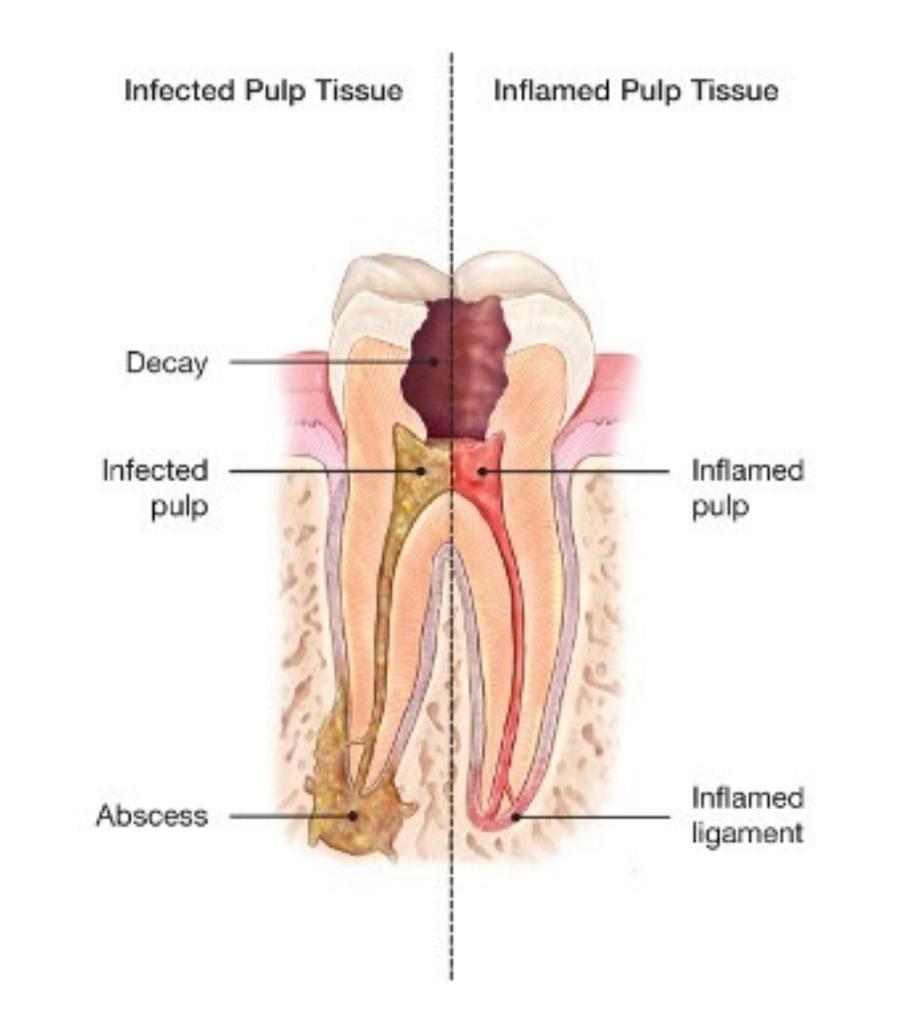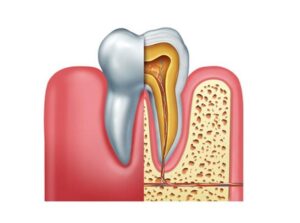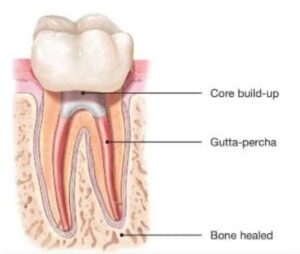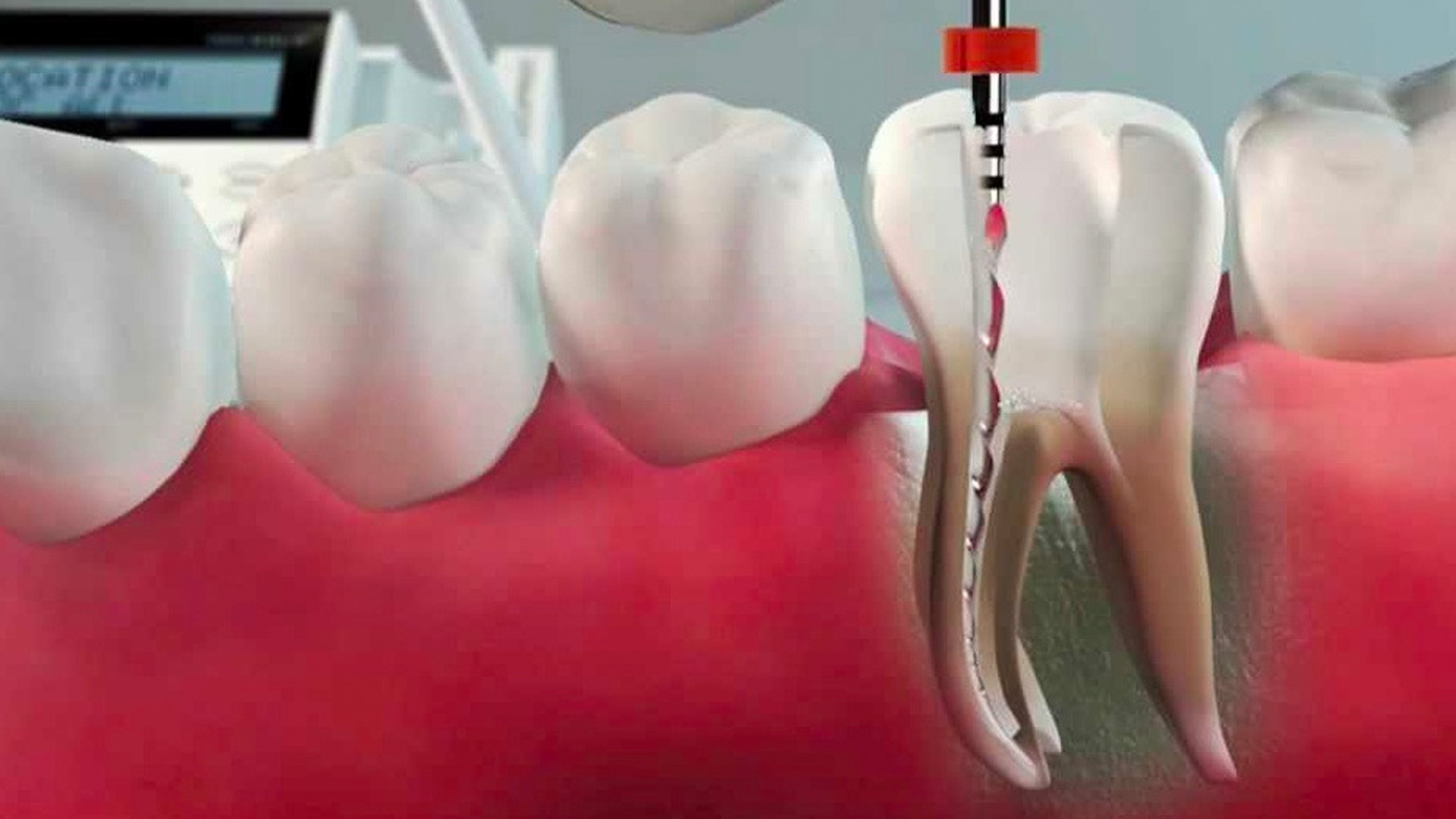What is a Root Canal?
Root canal treatment is designed to eliminate bacteria from the infected root canal, prevent reinfection of the tooth and save the natural tooth. When one undergoes a root canal, the inflamed or infected pulp is removed and the inside of the tooth is carefully cleaned and disinfected, then filled and sealed.
What happens during root canal treatment? Learn more about this quick, comfortable procedure that can relieve your pain and save your natural tooth.

There’s no need to be worried if your dentist or endodontist prescribes a root canal procedure to treat a damaged or diseased tooth. Millions of teeth are treated and saved this way each year, relieving pain and making teeth healthy again.
Saving the natural tooth with root canal treatment has many advantages:
- Efficient chewing
- Normal biting force and sensation
- Natural appearance
- Protects other teeth from excessive wear or strain
All About Root Canals
Aroot canal (also known as an endodontic treatment) is a serious procedure, but one that specialists handle every day. Before engaging in any type of dental work, it’s important to know the facts about root canals.

Does the Root Canal Treatment hurt?
Contrary to the popular belief, RCT’s do not hurt. A local anaesthetic is given to the patient and it does not feel any different from getting an ordinary filling procedure done. There may be some tenderness afterwards but this should get gradually less over time.
How do you know if you need a root canal?
Root canals are needed for a cracked tooth from injury or genetics, a deep cavity, or issues from a previous filling. Patients generally need a root canal when they notice their teeth are sensitive, particularly to hot and cold sensations.
- Severe pain while chewing or biting
- Pimples on the gums
- A chipped or cracked tooth
- Lingering sensitivity to hot or cold, even after the sensation has been removed
- Swollen or tender gums
- Deep decay or darkening of the gums
Can I go to school or work after getting a root canal?
Although you will most likely be numb for 2-4 hours following the procedure, most patients are able to return to school or work directly following a root canal. However, it is advised against eating until the numbness is completely gone.
How much does a root canal cost?
The cost varies depending on how complex the problem is and which tooth is affected. Molars are more difficult to treat; the fee is usually more. Most dental insurance policies provide some coverage for endodontic treatment.
Saving the natural tooth with root canal treatment has many advantages:
- Efficient chewing
- Normal biting force and sensation
- Natural appearance
- Protects other teeth from excessive wear or strain
How does endodontic treatment save the tooth?

It’s necessary to have endodontic or root canal treatment when the inside of your tooth (the pulp) becomes inflamed or infected as a result of deep decay, repeated dental procedures, faulty crowns or a crack or chip in the tooth. Trauma to your tooth may also cause pulp damage even if the tooth has no visible chips or cracks. If pulp inflammation or infection is left untreated, in can cause pain or lead to an abscess.
When you undergo a root canal or other endodontic treatment, the inflamed or infected pulp is removed and the inside of the tooth is carefully cleaned and disinfected, then filled and sealed with a rubber-like material called gutta-percha. Afterwards, the tooth is restored with a crown or filling for protection and will continue to function like any other tooth.

